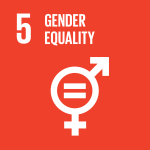
Climate change, nutrition and agri-food systems are major – but often separate – areas of work in countries, at institutions and for development and support programmes. More climate-resilient agrifood systems will require transformative change on different levels, such as at production – with a shift towards sustainable farming and land use practices and at consumption - with a reduction in food waste and healthier diets. There is a need to reimagine the ‘value’ in the agrifood value chains.
To prompt a discussion on what synergies and opportunities for better coherence exist, FAO’s Food and Nutrition Security Impact, Resilience, Sustainability and Transformation (FIRST) programme, together with the FAO-UNDP SCALA Progamme, convened stakeholders with different perspectives on the situation in Uganda. The conversation was premised on the recognition that linking climate change, food systems and social transformation processes can lead to co-benefits and enable multi-stakeholder collaboration that brings together smallholder producers (including women, youth, indigenous people), government representatives, research organizations and the private sector.
It's important to recognize that we are all consumers. All production and other processes in agrifood value chains are undertaken on behalf of the consumer and therefore consumers play a major role in initiating change. It is easier to connect the dots of food systems at the consumer level (diets and personal choices) than it is at the policy level where entities operate in silos with their own financing, policy instruments and institutional arrangements.
Everyone has the right to access safe and nutritious foods but often to meet consumers’ demands, the processes of producing foods negatively affect ecosystems, and the soil and land where they are produced. Sustainable production in a certain sense starts with a sustainable consumer.
With 81 percent of the Ugandan population engaged in rain-fed subsistence farming for food and cash income, climate change poses a major risk to economic growth, livelihoods, as well as export earnings, threatening to exacerbate inequality and poverty.
In addition, climate change impacts men and women differently, particularly in the agriculture and land use sectors. For instance, when Uganda’s cattle corridor experiences drought, men and women respond in different ways: men look for pastures for their livestock, while women look for water for the household. Therefore, Uganda has a strong emphasis on integrating gender into their National Adaptation Plan (NAP) and other climate policies that recognizes the different but equally important roles that men and women have in agriculture and food production.
Deforestation is another key stressor in Uganda. The country produces US$ 65 million in timber domestically and imports US$ 300 million in timber products every year. It also exported 5.3 tones of fruit and vegetables last year, with the potential to increase exports in this sector. This will require planting more trees, however, according to the Global Forest Watch report, Uganda lost about 900,000 hectares of forest cover between 2000 to 2020. This loss in tree cover is equivalent to 413 Mt of CO₂ emissions. Uganda has included forestry as a priority sector in its NAP and nationally determined contribution (NDC) with a commitment to reduce its national GHG emissions by 22 percent by 2030.
Domestically, Uganda also produces several staple crops including bananas, maize, tomatoes, onions, moringa, rice, coffee and cocoa trees. There is a window of opportunity for Ugandan farmers to diversify their crops (and forestry crops) to cope with seasonal droughts and minimize harvest losses due to climate change. There are clear synergies between promoting the diversification of crops for domestic consumption that would promote locally sourced nutritious foods to the population as well as tap into export markets.
Rice is another major commodity in Uganda, and it is a cereal that stores well with minimal post-harvest losses. Rice and rice husks also have many other uses and are important to local markets in Uganda. Rice husks can be used for weaving baskets, making pulp for paper production, briquettes for cooking fuel and roofing materials for homes. Rice husks are a more accessible household material and save time for women who would previously venture out to collect grass and other raw materials for domestic use.
However, rice is often grown in wetlands which are highly vulnerable to increased climate variability (rising temperatures and seasonal droughts) and, at the same time, contribute to significant greenhouse gas emissions. To adapt rice production in Uganda, companies like Upland Rice Millers have promoted upland rice varieties which are not grown in swamps or wetlands.
Another private sector voice, Sunshine Agro Products Ltd-Uganda encourages its +11,000 farmers to plant moringa trees that bear fruit. Moringa is not only a highly nutritious fruit that has the potential to contribute to food security, but it also thrives under local climate conditions. The Moringa tree is fast-growing, drought-resistant and flourishes in the sun and heat and it can grow with rainwater but does not require expensive irrigation techniques.
Government organizations, private sector companies, farmers and consumers need to work together to ensure that vulnerable and food insecure populations have access to healthy diets while building resilience to climate change risks and impacts. Traditional grains and locally grown fruit trees and timber could very well contribute to the triple-win story of adapting to climate change through diversifying crops, offering nutritious and healthy diets to the Ugandan population, and creating a sustainable agri-food system that is both profitable domestically, as well as internationally.
***
Editor’s note: This story was developed from the interventions made at the FIRST-SCALA joint webinar “Agrifood systems transformation to achieve global climate and nutrition targets: what is the implementation traction in countries?” on 22 March 2022 by Henry Kimra the Chief Executive of Consumer Education Trust; Pamela Anyoti, the Co-founder, Sunshine Agro Products Ltd-Uganda; Philip Idro, the Director of the Upland Rice Millers and current Chairman of Rice Council of Uganda; and Imelda Kanzomba, the Principal Agriculture Officer, Gender and Climate Change Focal Point in the Ugandan government.




